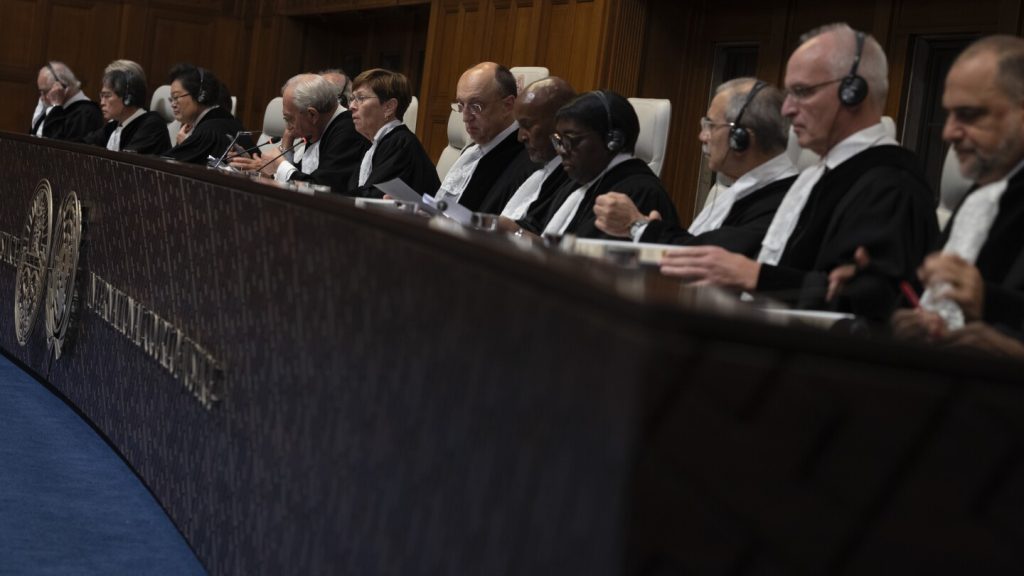Lawyers for Armenia have asked the United Nations court to dismiss a case filed by Azerbaijan over the Karabakh region, accusing Armenia of ethnic cleansing. The case was initiated by Azerbaijan in 2021, shortly after Armenia brought its own case against Azerbaijan in relation to the 2020 war over Karabakh. Azerbaijan has also requested the court to throw out Armenia’s case. Armenia is challenging the court’s jurisdiction in the case based on the International Convention on the Elimination of All Forms of Racial Discrimination, which Azerbaijan ratified in 1996. Most of the complaints date back to the first Karabakh war, which ended two years ago.
Karabakh, a region within the territory of Azerbaijan, was under the control of ethnic Armenian forces supported by Armenia until last year. Following tensions in 2020, Azerbaijan gained control over parts of the region and adjacent territories through a Russia-brokered ceasefire. Azerbaijan conducted a military campaign in Karabakh in 2023, leading to the majority of the region’s residents fleeing. During hearings in 2021, Azerbaijan accused Armenia of seeding the area with landmines and refusing to assist with clearance efforts. In response, Armenia denies engaging in racial discrimination and refutes Azerbaijan’s claims. The court has previously ordered both parties to take measures to reduce tensions, including preventing the incitement of racial hatred and mistreatment of prisoners of war.
The convention against racial discrimination provides for disputes to be resolved by the world court if bilateral negotiations fail to reach a settlement. In December, Armenia and Azerbaijan agreed to commence negotiations on a peace treaty. However, residents in Armenia’s border regions have resisted the demarcation effort, viewing it as Azerbaijan encroaching on their territory. Prime Minister Nikol Pashinyan of Armenia emphasized the need to quickly define the border with Azerbaijan to avoid further hostilities in the Caucasus region. The court has intervened multiple times, issuing emergency orders to Armenia and Azerbaijan to prevent actions that could escalate the conflict and to allow for humanitarian aid to enter the region.
The legal battle at the International Court of Justice continues between Armenia and Azerbaijan over the Karabakh region, with both countries disputing the allegations of ethnic cleansing and racial discrimination. The court’s involvement follows a history of conflict and tensions between the two nations, with Armenia previously controlling Karabakh but losing territories to Azerbaijan in the 2020 war. The court has intervened to address specific issues such as landmines, mistreatment of prisoners of war, and the blockade of humanitarian supplies. Despite efforts to negotiate a peace treaty, challenges remain due to resistance from border residents and the complex geopolitical situation in the Caucasus. Both Armenia and Azerbaijan are seeking to establish their territorial borders and resolve ongoing disputes through legal channels.
The proceedings at the United Nations court highlight the ongoing struggle for peace and stability in the Karabakh region, with Armenia and Azerbaijan presenting conflicting narratives and seeking legal recourse to address grievances. The cases filed by both countries underscore the complexities of ethnic conflicts and territorial disputes, especially in post-Soviet regions like the Caucasus. The court’s involvement in resolving these disputes reflects the importance of international law and diplomacy in managing conflicts between nations. As the legal battle unfolds, the fate of the Karabakh region and its residents hangs in the balance, with the hope for a peaceful resolution to the longstanding issues between Armenia and Azerbaijan. The international community is closely following the developments at the court, awaiting a decision that could have significant implications for the region and its future.


